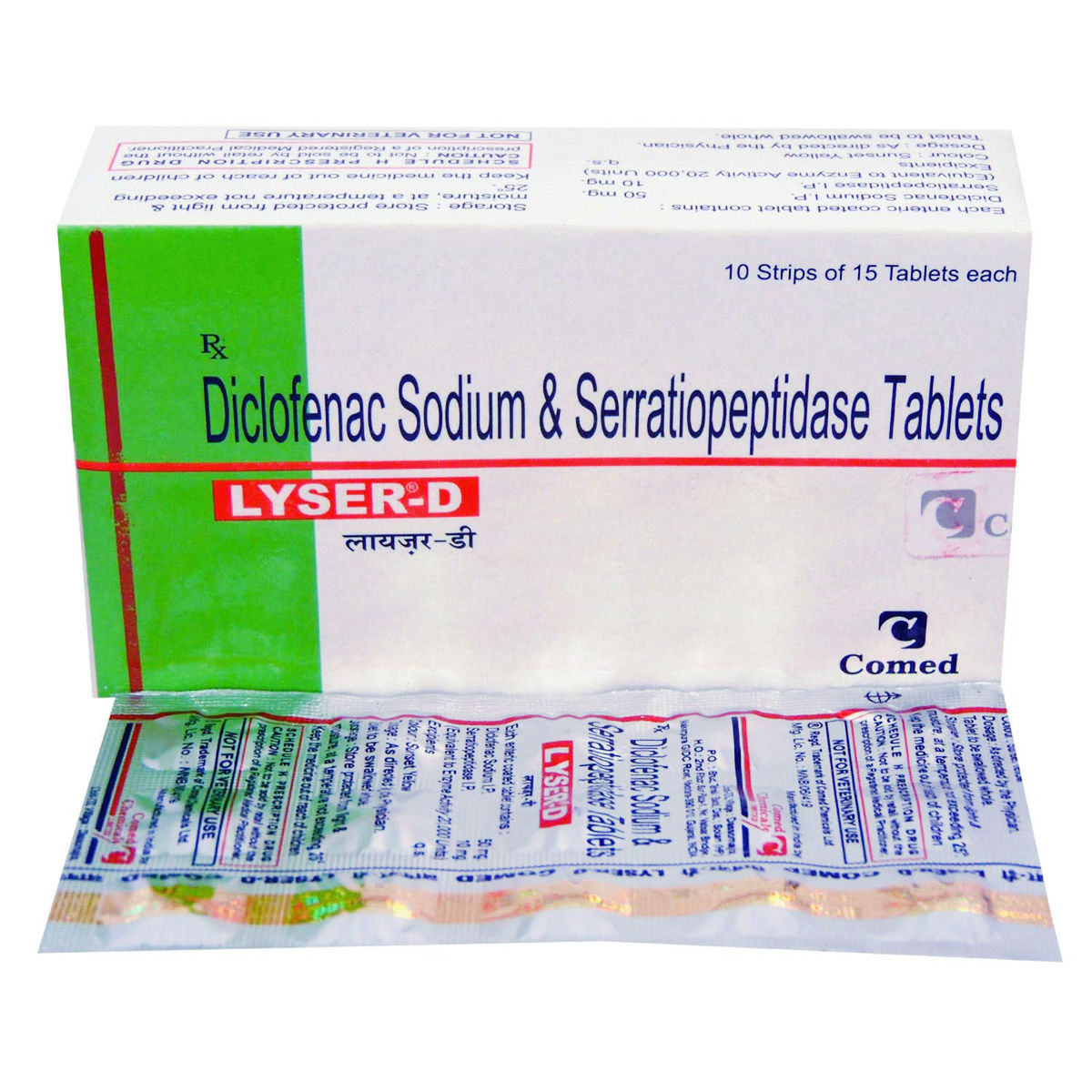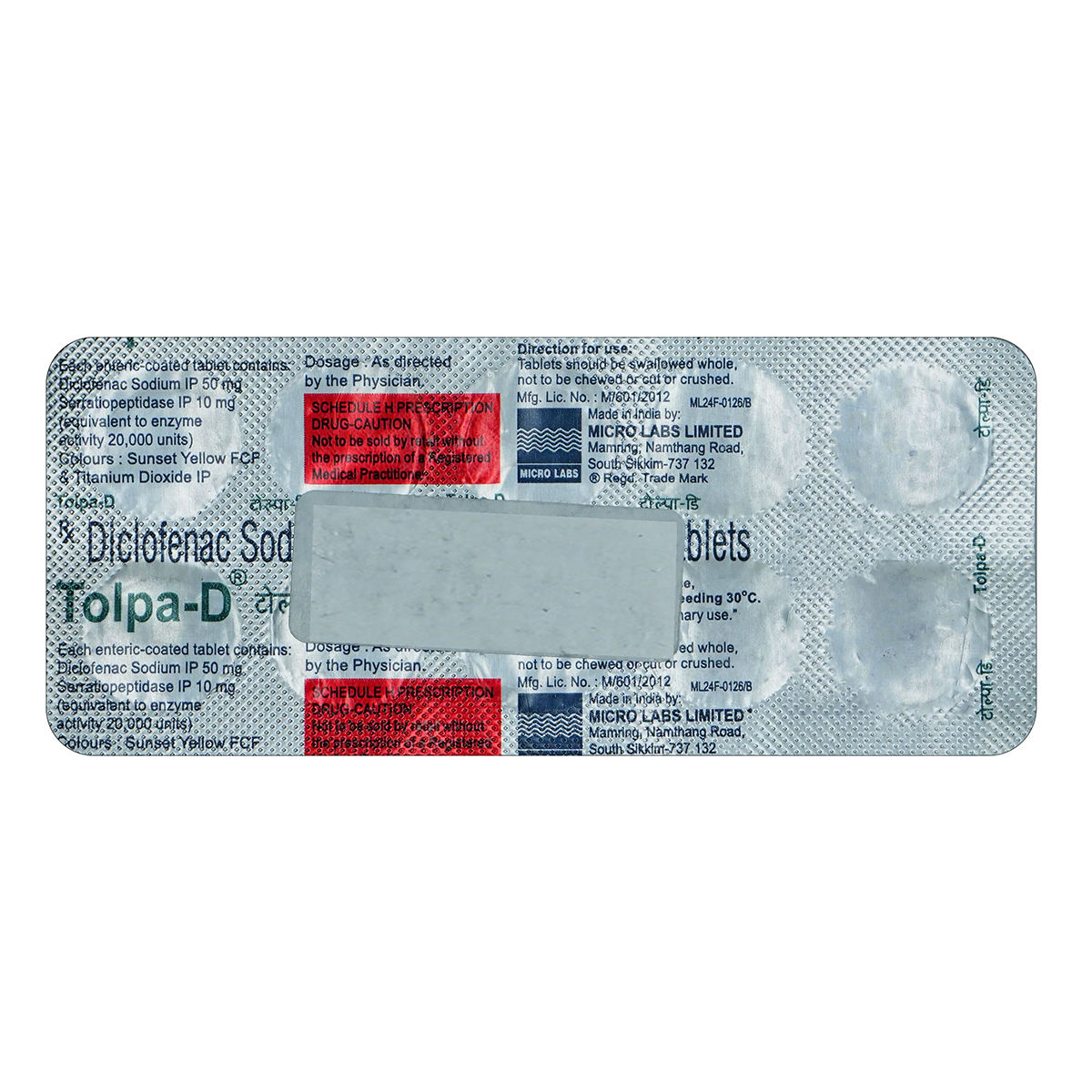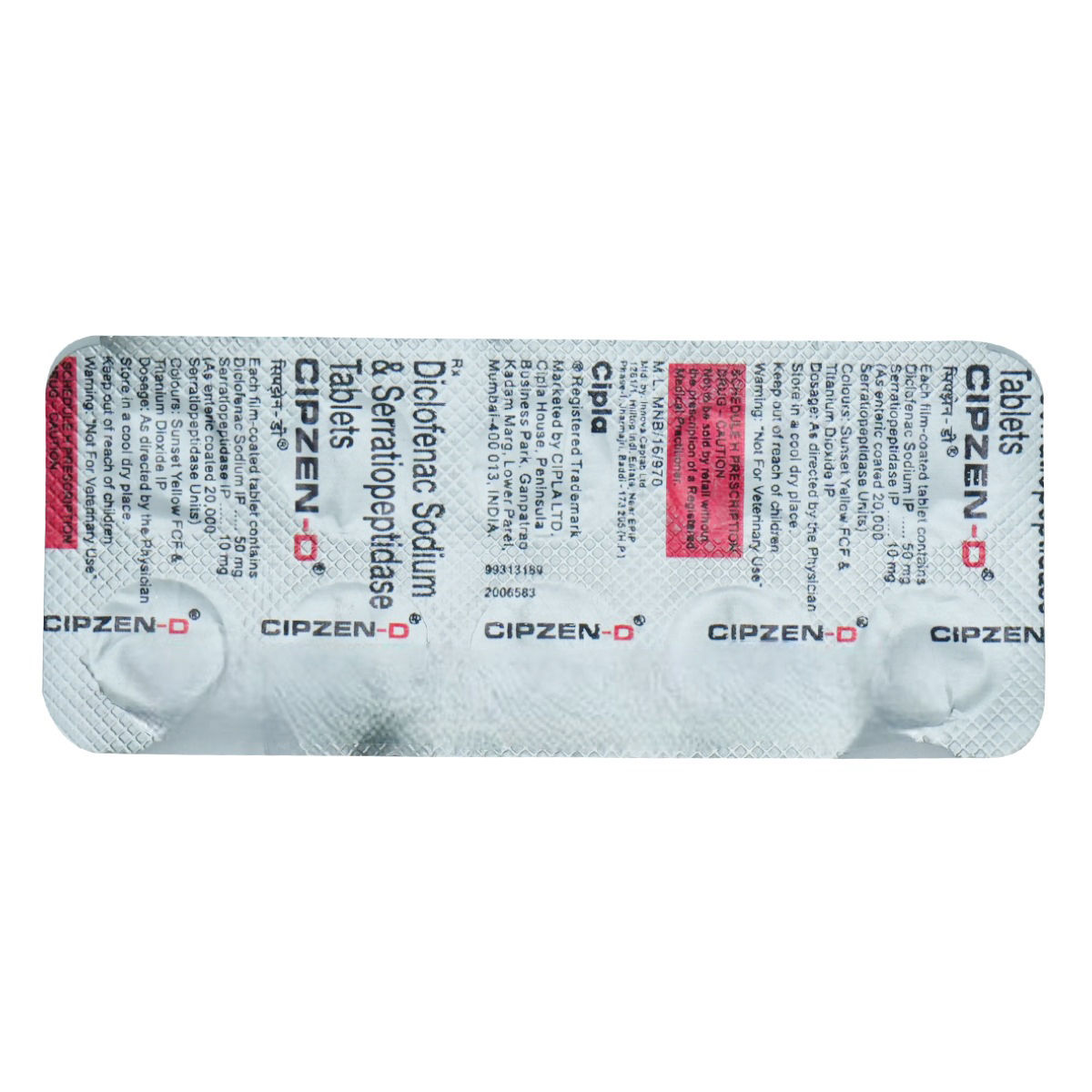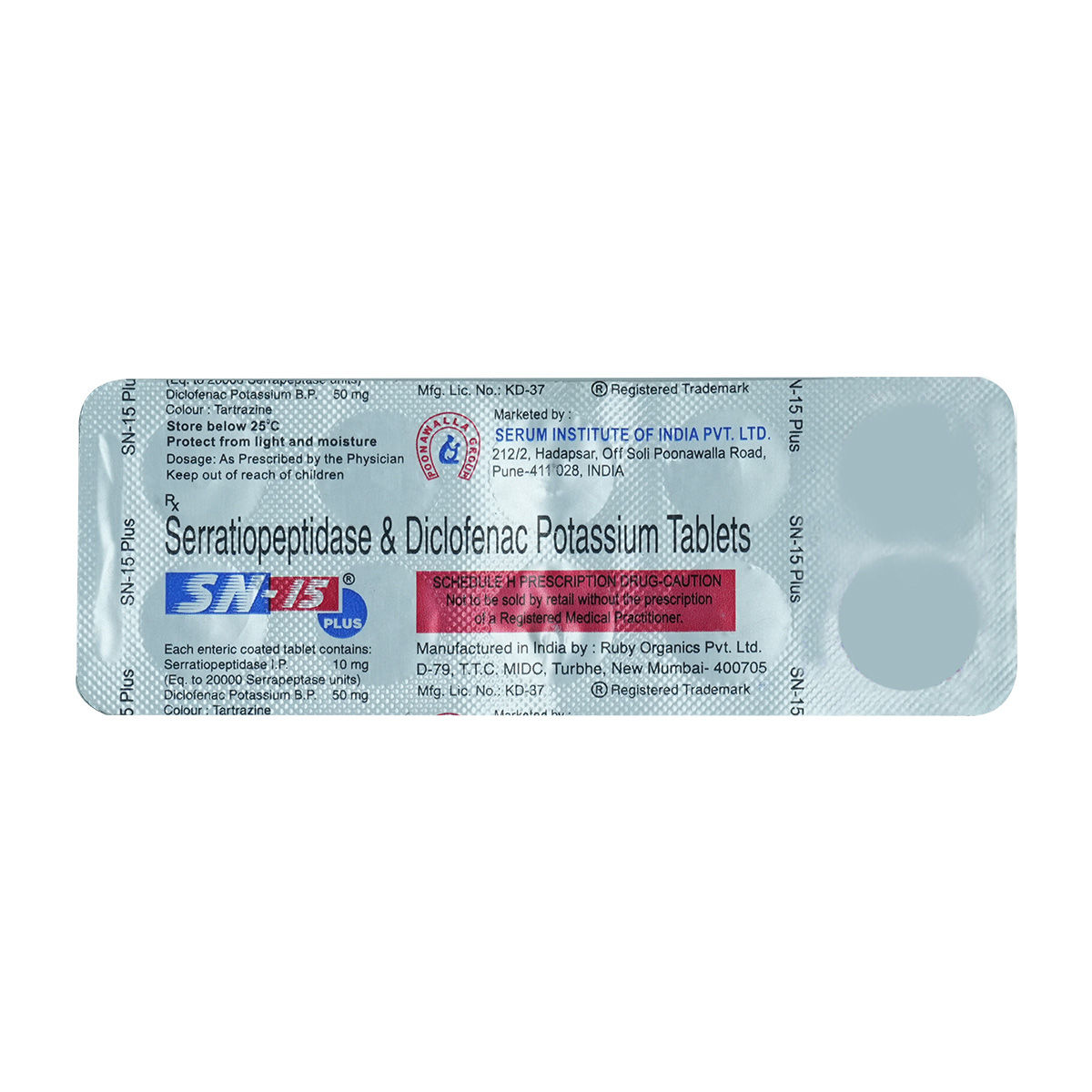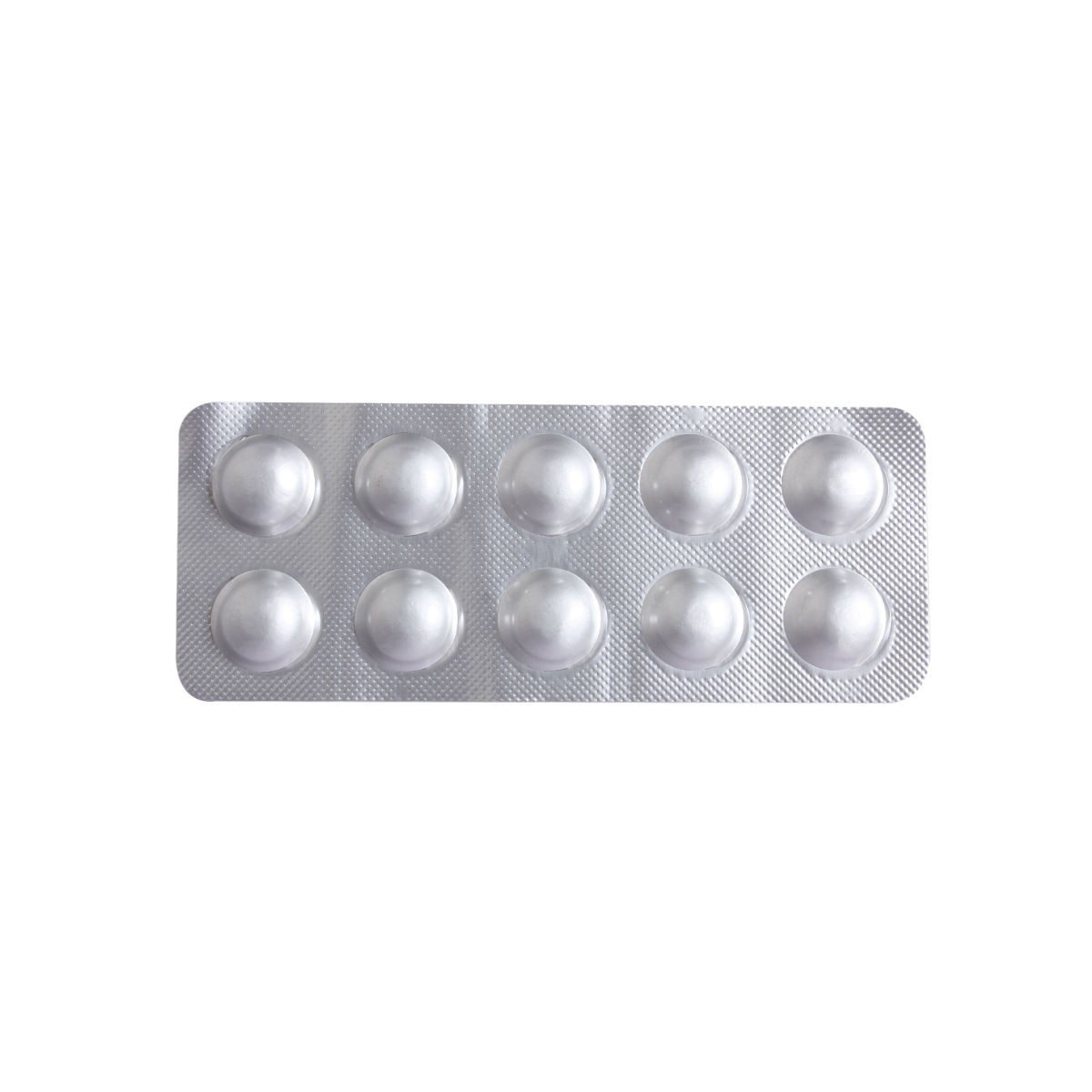Pepser P 50mg/10mg Tablet
₹36*
MRP ₹40
10% off
₹34*
MRP ₹40
15% CB
₹6 cashback(15%)
Free Delivery
With Circle membership
(Inclusive of all Taxes)
This offer price is valid on orders above ₹800. Apply coupon PHARMA10/PHARMA18 (excluding restricted items)
Know Your Delivery Time
Provide Delivery Location

Whats That

Secure Payment

India's Most Trusted Pharmacy

Genuine Products
Composition :
Consume Type :
Return Policy :
About Pepser P 50mg/10mg Tablet
Pepser P 50mg/10mg Tablet belongs to the class of drugs known as 'non-steroidal anti-inflammatory drug' (NSAID). It is a fixed-dose combination composed of diclofenac and serratiopeptidase. Pain can be temporary (acute) or lifelong (chronic) in nature. Acute pain is for short time caused by damage to the tissues of the muscle, bone, or organs. While, chronic pain lasts for life long caused due to nerve damage, osteoarthritis, and dental pain due to damage of the tooth nerve, infection, decay, extraction, or injury.
Pepser P 50mg/10mg Tablet is used in the reduction of pain and inflammation due to bone or soft tissue injury, resolution of postoperative inflammation, oedema (swollen tissue with fluid) and pain. Diclofenac works by blocking the action of a chemical messenger known as cyclo-oxygenase (COX) which causes pain and swelling at the injured or damaged tissue. Serratiopeptidase is a proteolytic enzyme which helps in the breakdown of insoluble protein (fibrin) a by-product of blood clots into smaller units. It also causes thinning of the fluids in the body as a result of injury, thereby making fluid drainage smoother in the swollen tissue.
You can take Pepser P 50mg/10mg Tablet with food or without food. It should be swallowed whole with a glass of water. Do not chew, bite, or break it. Your doctor will advise you on how often you take Pepser P 50mg/10mg Tablet based on your medical condition. Pepser P 50mg/10mg Tablet may have common side effects like stomach ache, diarrhoea, nausea (feeling sick), and indigestion. Most of these side effects of Pepser P 50mg/10mg Tablet do not require medical attention and gradually resolve over time. However, if the side effects are persistent, reach out to your doctor.
Try not to stop taking this medicine of your own. Do not take Pepser P 50mg/10mg Tablet if you are allergic to painkillers like aspirin, ibuprofen, naproxen, or diclofenac. It is not recommended for use in children. Pepser P 50mg/10mg Tablet may be associated with a small increased risk of heart attack ‘myocardial infarction. It is advisable not to exceed the recommended dose or duration of treatment.
Uses of Pepser P 50mg/10mg Tablet
Medicinal Benefits
Pepser P 50mg/10mg Tablet plays a vital role in reducing pain and inflammation by blocking the release of chemical messengers which cause pain and fever. Pepser P 50mg/10mg Tablet relieves pain and inflammation in arthritic conditions with the benefit of increased antibiotic penetration and micro-circulation at the injury site. Serratiopeptidase present in Pepser P 50mg/10mg Tablet is a proteolytic enzyme which helps in the breakdown of insoluble protein (fibrin) a by-product of blood clots into smaller units. It also causes thinning of the fluids in the body as a result of injury, thereby making fluid drainage smoother in the swollen tissue.
Side Effects of Pepser P 50mg/10mg Tablet
Stomach ache
Diarrhoea
Nausea (feeling sick)
Indigestion
Directions for Use
Storage
Drug Warnings
Consumption of alcohol should be avoided during the treatment with Pepser P 50mg/10mg Tablet as it may lead to an increase in the risk of liver damage. Patients with a stomach ulcer, gastric bleeding, severe heart failure, stroke, and hypertension (high blood pressure), should not take Pepser P 50mg/10mg Tablet. Besides this, it should be avoided during the last trimester of pregnancy, unless there are compelling reasons for doing so. If you have a severe allergy to pain killers and, complications like asthma, rhinitis, angioedema (swelling under the skin) or skin rashes, immediately stop taking Pepser P 50mg/10mg Tablet. Do not drive or operate heavy machinery as intake of Pepser P 50mg/10mg Tablet may cause dizziness. Patients who had recently undergone heart bypass surgery should take Pepser P 50mg/10mg Tablet with caution and only under medical supervision. Use of Pepser P 50mg/10mg Tablet is contraindicated in kidney failure patients or who are undergoing dialysis.
Therapeutic Class
Drug-Drug Interactions
Drug-Food Interactions
Diet & Lifestyle Advise
Include more glucosamine, chondroitin sulphate, Vitamin D, and calcium-enriched supplements. Besides this, turmeric and fish oils can help in reducing inflammation in the tissue.
Do not go for heavy exercise as it may increase your joint pain in arthritis. Instead you can do stretching, low impact aerobic exercise like walking on treadmill, bike riding and swimming. You can also strengthen your muscle strength by lifting light weights.
In chronic condition of arthritis or joint pain try to include fish like salmon, trout, tuna, and sardines. These fishes are enriched with omega-3 fatty acids that minimize level of chemical called cytokines, which ramp up inflammation.
Your sitting posture is important especially when have pain and inflammation conditions. Try to sit little as possible, and only for short time (10-15 min). Use back support like a rolled-up towel at the back of your curve to minimize pain. Keep your knees and hips at a right angle. Besides this, you can use a foot rest if required.
Habit Forming
What if I have taken an overdose of Pepser P 50mg/10mg Tablet
Country of origin
Author Details
We provide you with authentic, trustworthy and relevant information
Disclaimer
Product Substitutes






